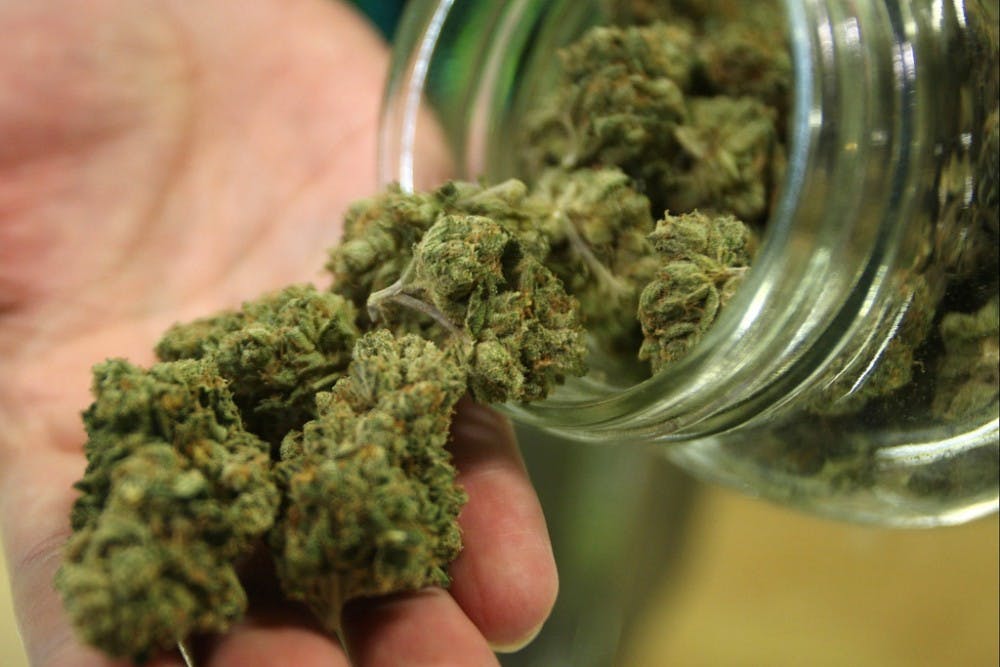In pop culture cannabis is typically associated with feelings of relaxation, but recent studies have shown that the using cannabis frequently can lead to an increase in violent behavior later in life.
According to the National Institute on Drug Abuse, cannabis, more commonly called marijuana, weed or pot, comes from the dried flowers of Cannabis sativa.
While the drug can be used medically to treat muscle spasms caused by multiple sclerosis, nausea caused by chemotherapy and seizure disorders, many people use cannabis recreationally for the calming feeling that comes with the drug.
The chemical most responsible for the feeling is delta-9-tetrahydrocannabinol (THC); this cannabinoid, after entering the body, attaches itself to specific sites in the brain. These bindings ignite a string of chemical reactions in the body, producing the effects many users feel when they smoke or otherwise ingest marijuana.
Currently, in the United States, medical marijuana in some form is legal in 29 states and Washington, D.C. Limited recreational use is legal in Alaska, Colorado, California, Maine, Massachusetts, Nevada, Oregon, Washington and Washington, D.C., while Arizona, Florida, Nevada, Michigan and Missouri have initiatives to legalize marijuana in upcoming elections.
While it is common for teens and young adults to experiment with the drug for its calming, seemingly short-term effects, according to a new study, frequent use of this drug can have consequences, specifically, violent tendencies.
The problem with examining the relationship between cannabis and violent behavior is that it is difficult to tell whether cannabis is a causality or merely a behavior associated with another factor leading to the violence.
However, a new study on marijuana use published in Psychological Medicine followed participants for fifty years, from childhood to adulthood. By conducting the study for a longer period of time, researchers hoped to more clearly identify which came first: the violent behavior or the use of marijuana.
The subjects of this study were 411 boys from London, all born around the year 1953.
Researchers found that 68 percent of the boys never tried cannabis, and hardly any of these boys had any reported onsets of violent behavior.
The other 38 percent had tried cannabis at least once in there life, and 20 percent of those who tried it continued to use it well into their 30s and 40s. Twenty two percent of users were reported for violent behavior after beginning to frequently use cannabis, while only 0.3 percent were reported to be violent before.
Even after researchers took into account other factors for each individual boy, such as family history, mental illness and other drug use, the use of cannabis seemed to be the strongest predictor of violent behavior late in life.
Another recent study published in Frontiers in Psychiatry looked at 1,136 patients between the ages of 18 and 40, all with mental illnesses.
In fact, according to the principal researcher Alexandre Dumais, the patients who’ve been reported to use cannabis seem to be 144 percent more likely to be violent.
“The interesting feature of [their] results is that the association between persistent cannabis use and violence is stronger than that associated with alcohol or cocaine,” Dumais said, according to ScienceDaily.
Therefore while the use of cannabis is seen by many teens as a harmless de-stressor, these studies are beginning to prove that there may be more long-term negative effects than people think.





